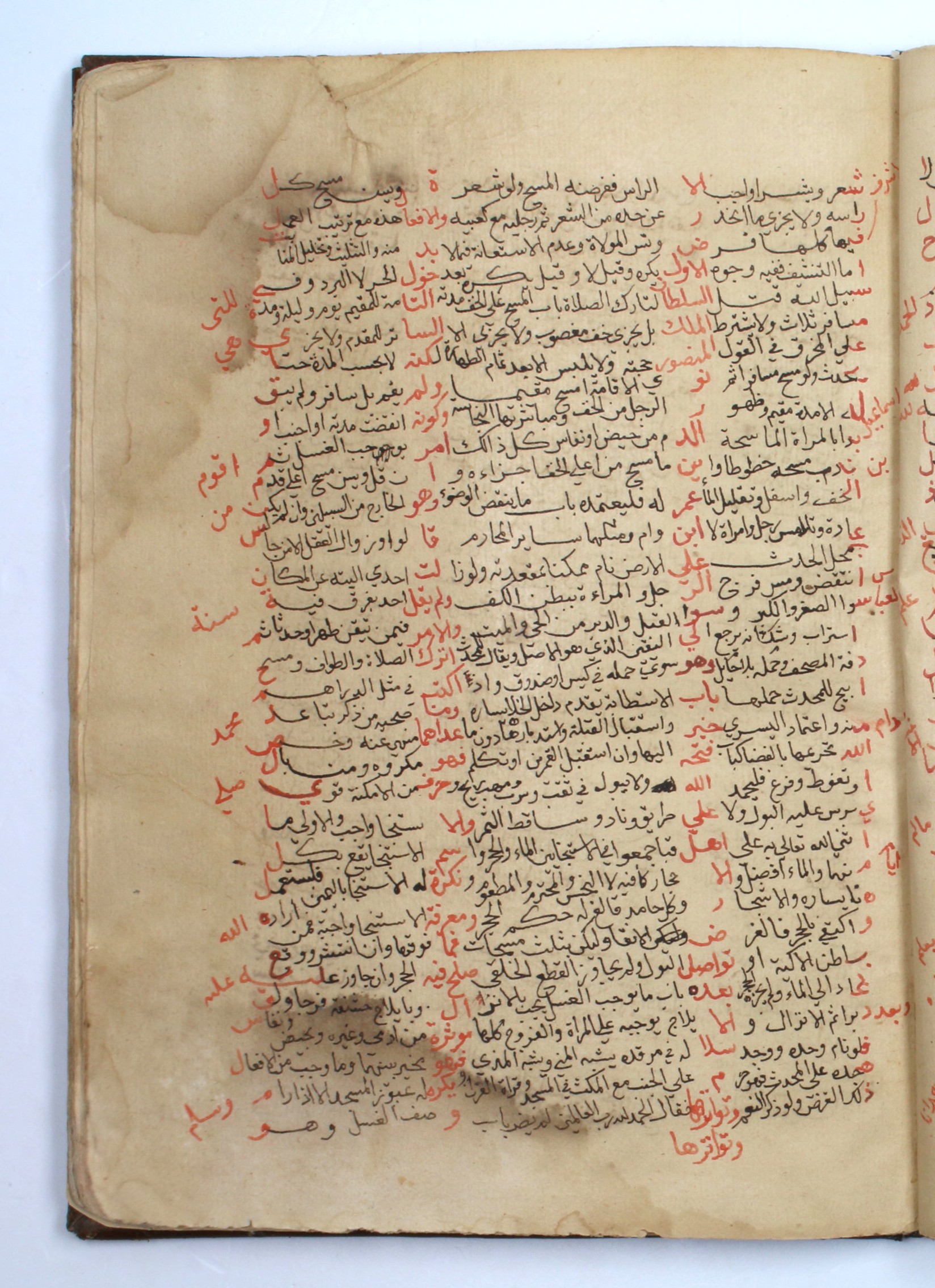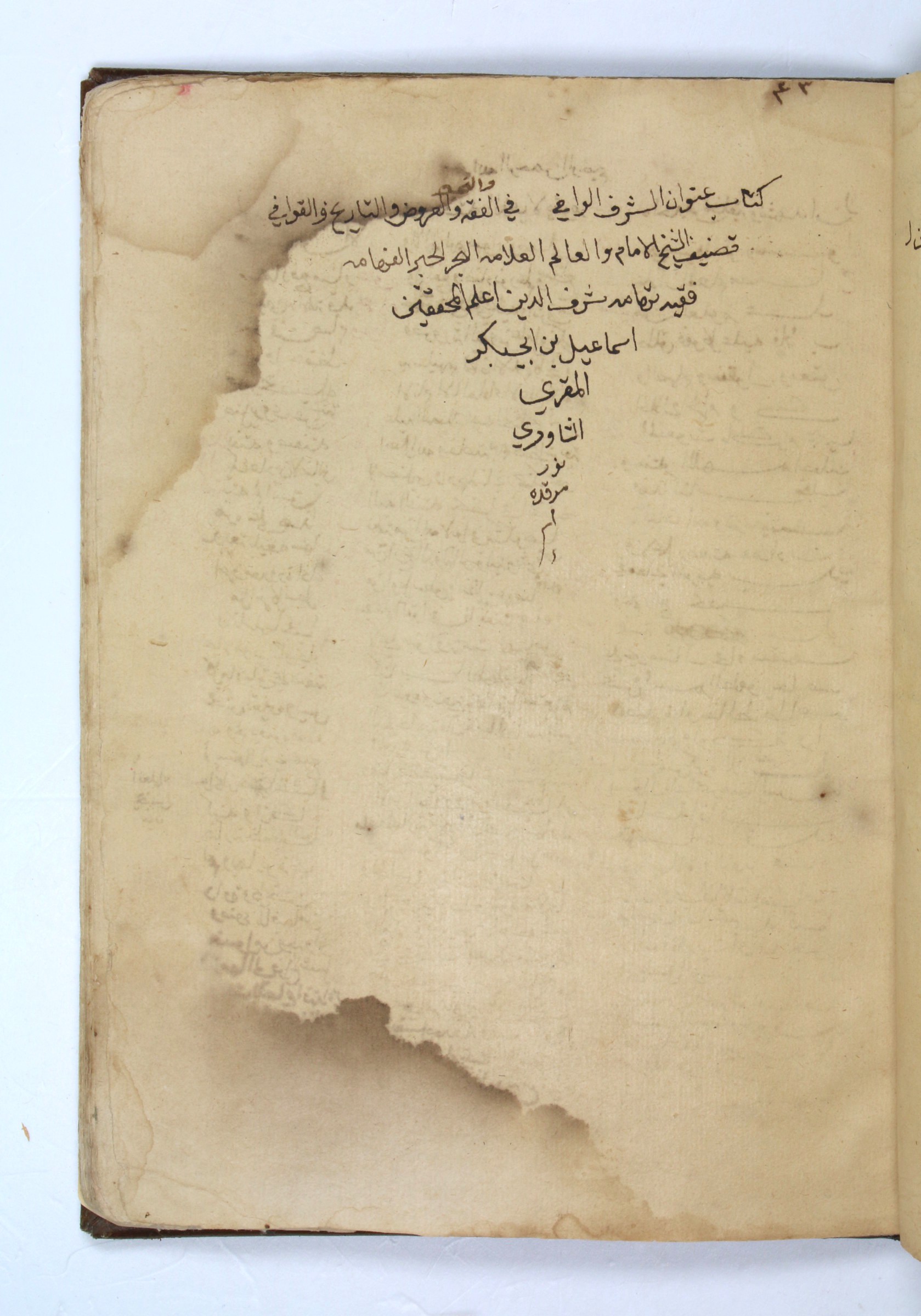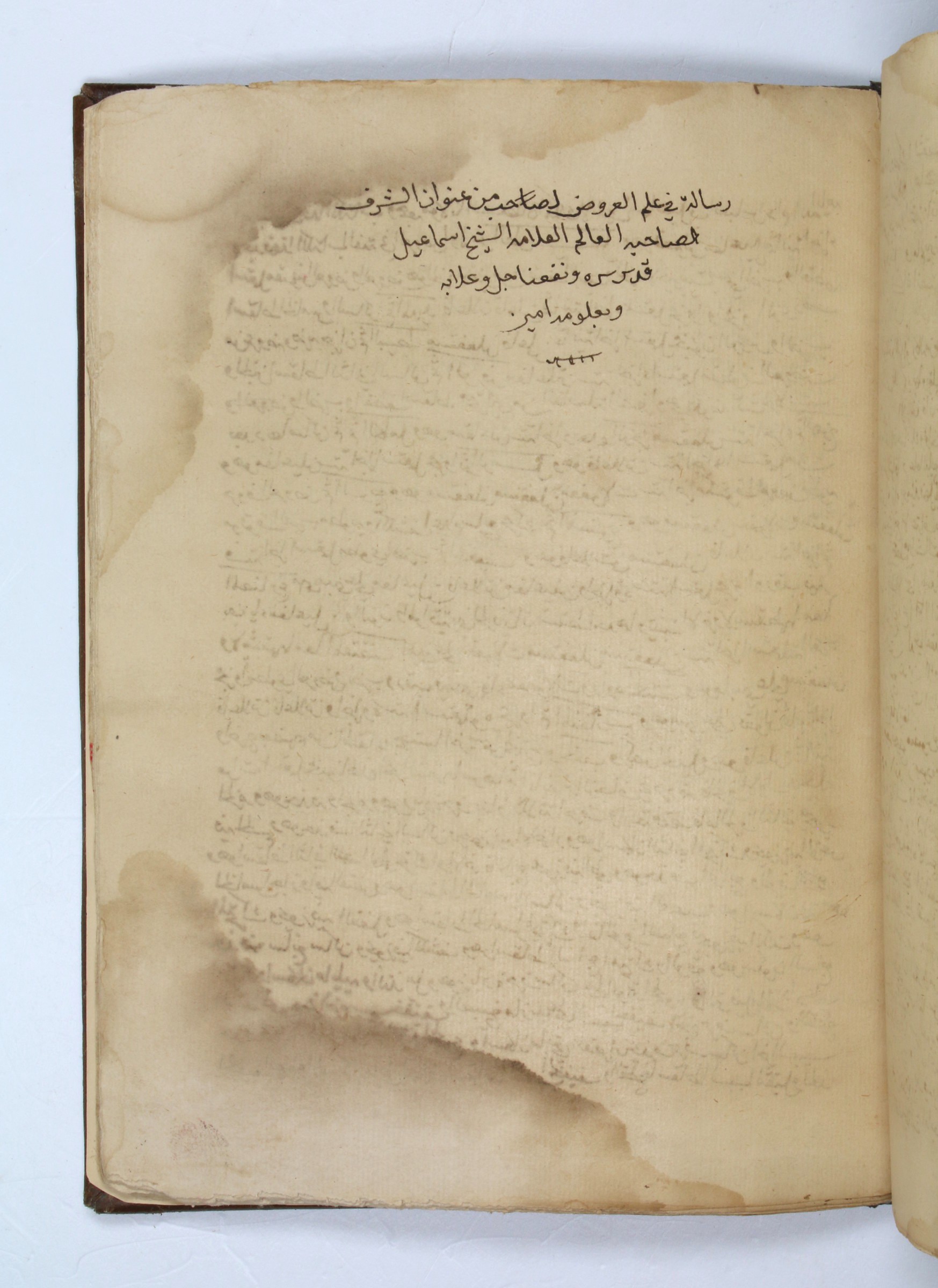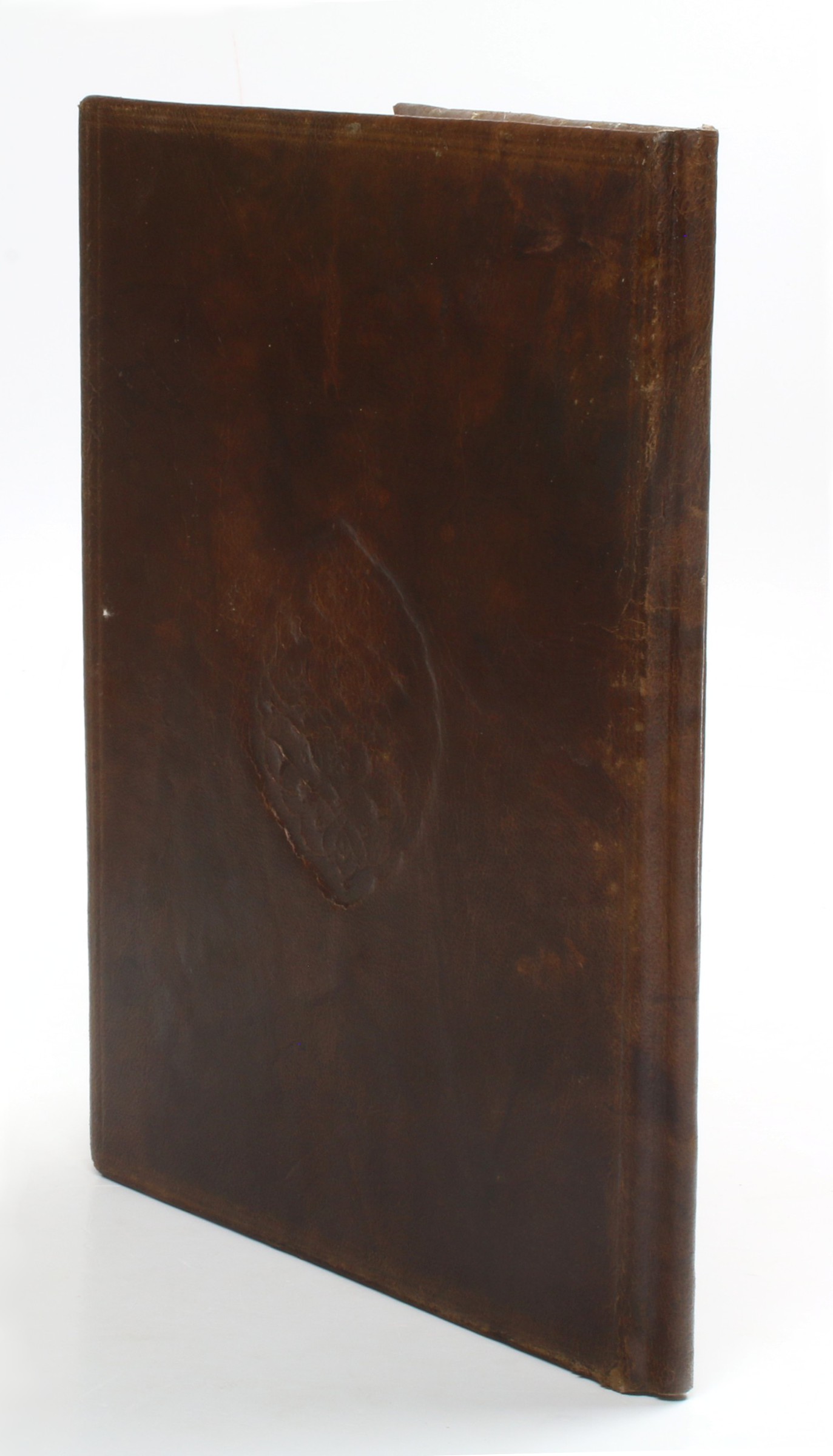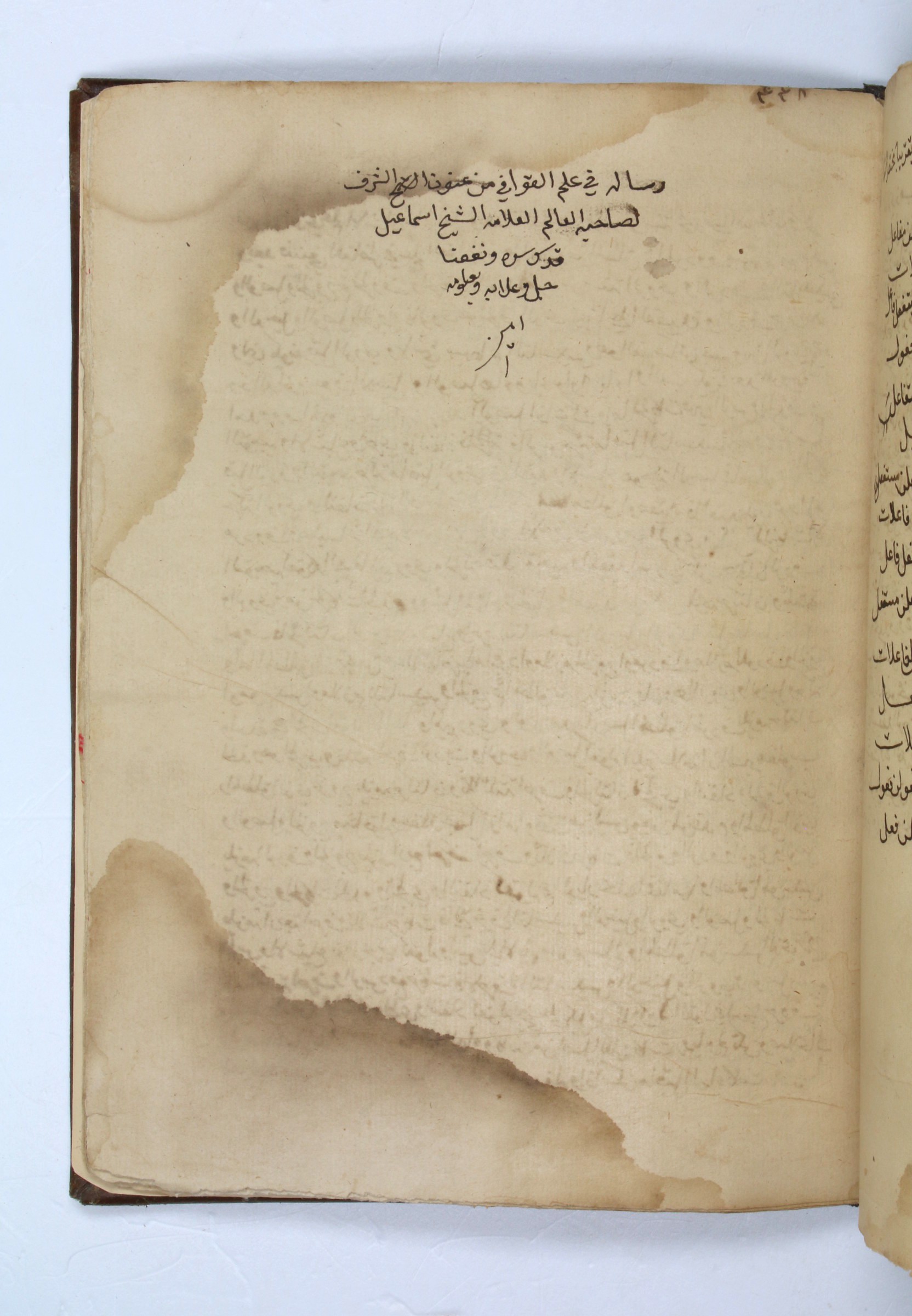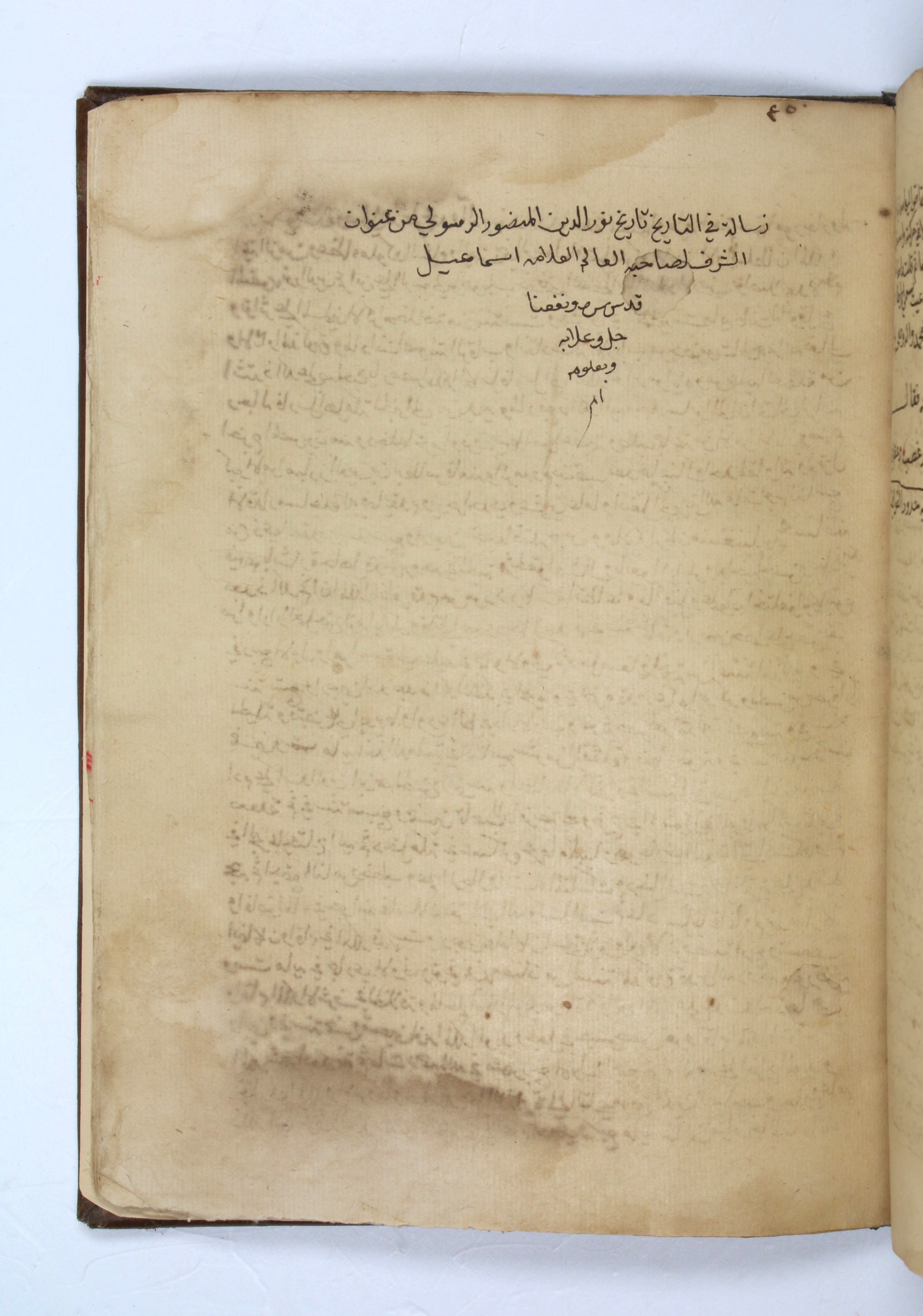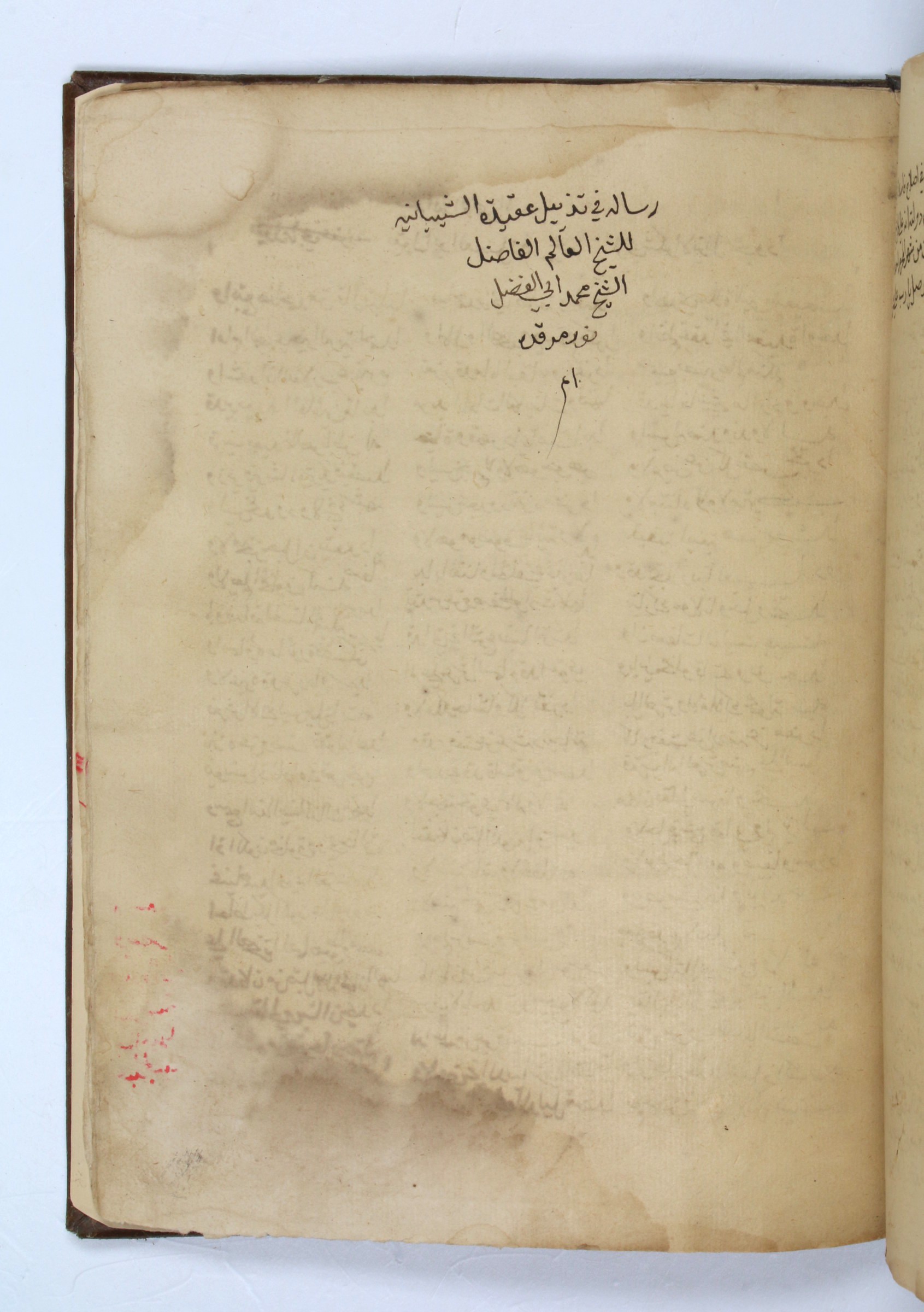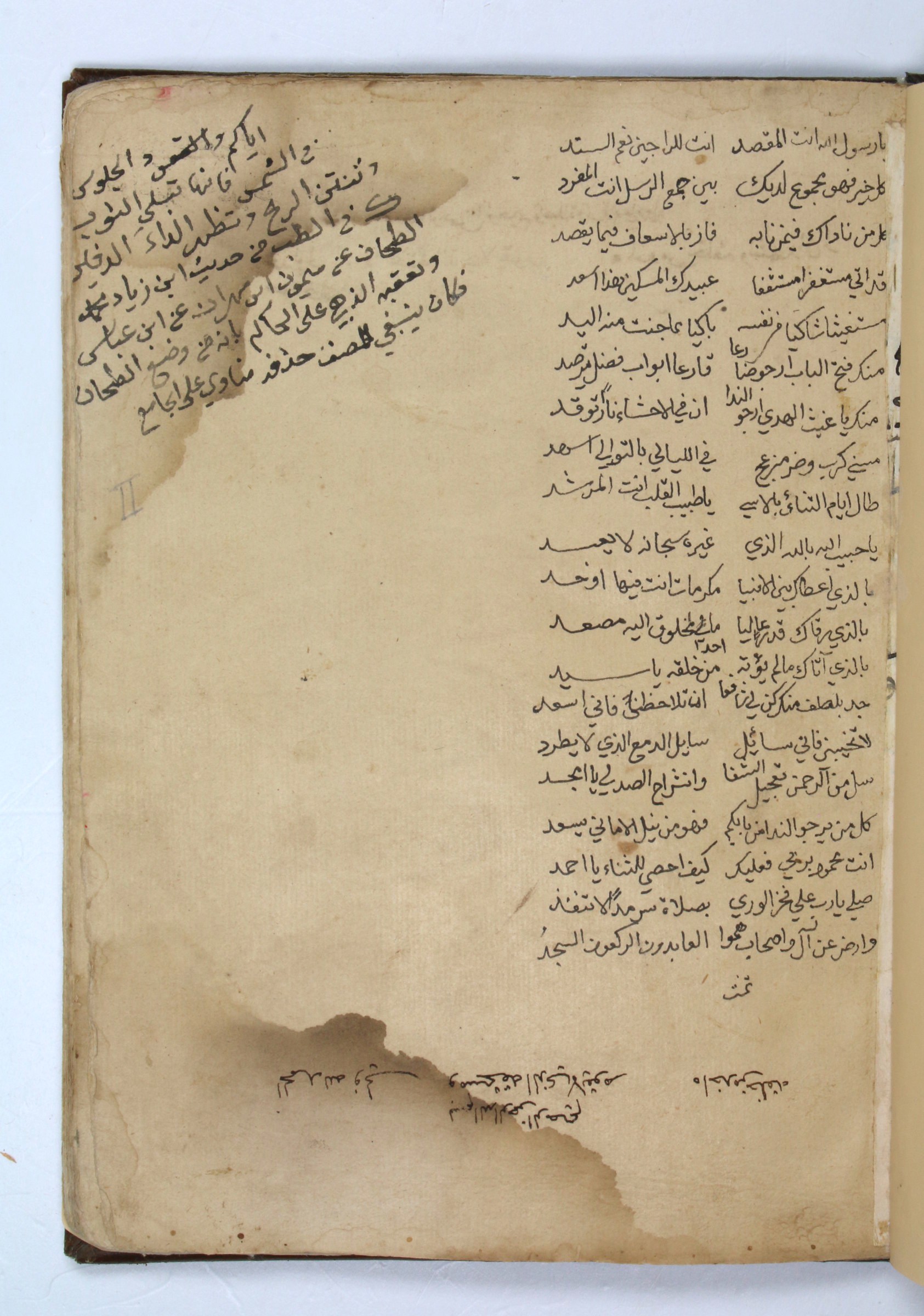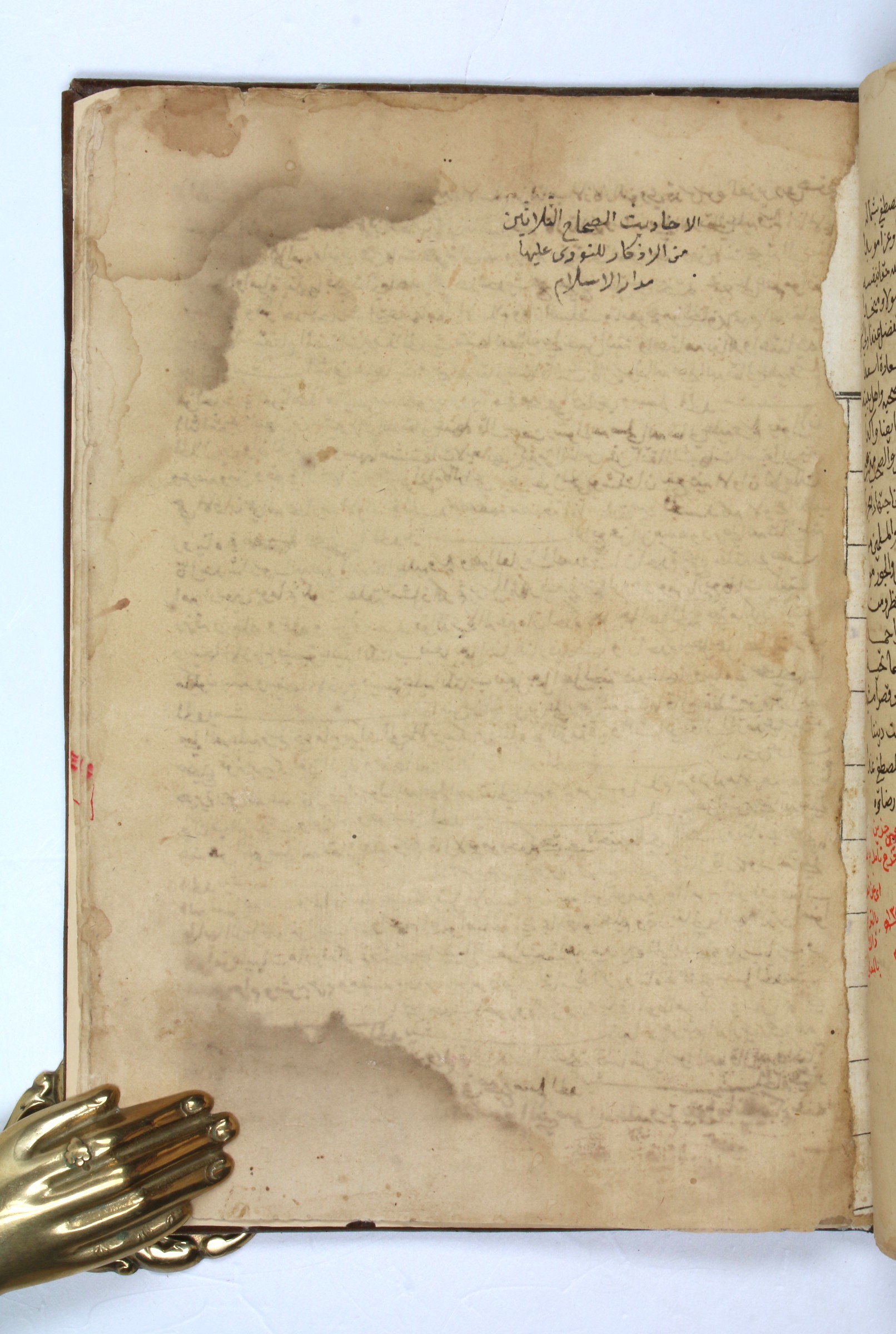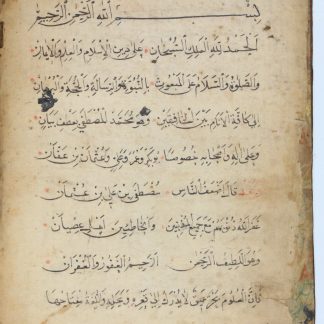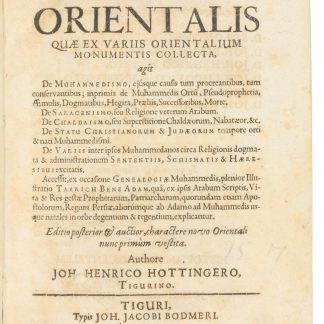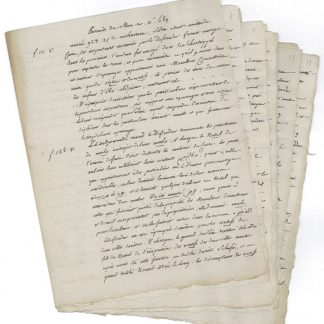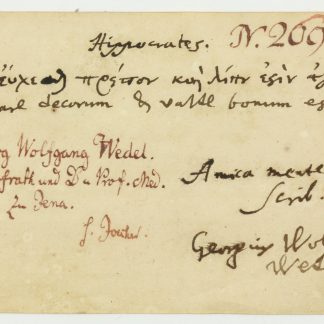Arabic scholarship, interlacing works on fiqh, rhyme, prosody, history, and grammar
'Unwan al-sharaf al-wafi fi al-fiqh wa-al-nahw wa-al-ta'rikh wa-al-'arud wa-al-qawafi [An encyclopedia of sciences].
4to (160 x 214 mm). 60 pp. Arabic manuscript on paper. Black naskh script with important words and phrases picked out in red. Modern full leather stamped with medallion on each cover.
Composed in a highly unique manner, al-Muqri's "Kitab 'Unwan al-sharaf al-shafi" combines five treatises which are arranged concurrently, according to the colour and order of letters on the page: 1) the main body of text, read across from right to left, is a treatise on jurisprudence (fiqh); 2) the text formed by using every first red word on each line is a treatise on prosody (al-arud); 3) reading every last red word on each line forms a treatise on rhyme (al-qawafi); 4) reading every red perpendicular word on each line forms a treatise on the history of the Rasulid dynasty of Yemen; 5) reading every second perpendicular red word forms a treatise on grammar (al-nahw).
Carried out up to page 33, the main part of the present manuscript comprises a little less than half of the work; after this point, the copyist must have decided to focus his efforts on the subjects of prosody, rhyme, and history. Therefore, pages 35-37 contain, separately, al-Muqri's complete treatise on prosody (given only incompletely in the previous, interlaced section); this is followed, on p. 38, by a poetic interlude on the same subject, by the 14th century Arab warrior poet Safi al-Din al-Hilli. Pages 39-42 contain al-Muqri's complete treatise on rhyme, and pages 43-48 contain the complete text of his treatise on the history of the Rasulid dynasty of Yemen (again, both already rendered incompletely in the first, interlaced text). This section ends with a colophon, stating the date of al-Muqri's authorship (804 AH/1401 CE) and that of copying, by Ma'tuq bin Ali, in 1122 AH.
The last six leaves of this manuscript contain two brief additional works, unrelated to al-Muqri's "'Unwan al-sharaf al-wafi", but both ending with separate colophons stating the same date and copyist's name. The first of these, on pp. 49-54, is the "Tadhyil 'Aqidat al-Shaybaniyah" (Appendix to the Creed of al-Shaybani) by Najm al-Din Abu al-Fadl Muhammad ibn 'Abd Allah ibn Qadi 'Ajlun: this is an apparently unknown appendix to a verse treatise by Muhammad ibn al-Hasan al-Shaybani (ca. 750-805), a leading Hanafi scholar from Iraq, considered the father of Muslim international law. Cleverly, Abu al-Fadl inserts lines of poetry throughout the original poem, thus clarifying and expounding on it while always observing the metre and rhyme of the original. The Shafi'i law scholar Najm al-Din Abu al-Fadl (1427/28-1471/72) grew up in Damascus but later lived in Egypt, where he assumed a judicial office and taught Islamic law. While he is known for composing a commentary to the "Creed of al-Shaybani", the present appendix could not be traced.
Finally, pp. 55-59 comprise "al-Ahadith al-Sihah al-Thalathin min al-Adhkar lil-Nawawi 'Alayha Midar al-Islam" ("Thirty authentic Hadiths from the Book of Remembrances by al-Nawawi upon which the foundations of Islam revolve"), which is the final chapter of the famous "Kitab al-Adhkar" (Book of Remembrances) by Imam Yahya ibn Sharaf an-Nawawi. It discusses the hadiths that form the cardinal points of Islam.
Minor dampstaining; otherwise in excellent condition.
GAL II, 191; S II, 254 (for the 'Unwan al-sharaf al-wafi).

